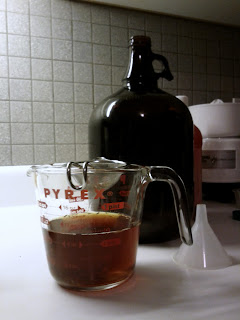Awesome logo by my boyfriend.
K-JOW
Brew 6 weeks in one gallon of vodka or gin. Use a dark glass or ceramic container.
Ingredients:
- 18 g Hong Hua (Safflower): Anti-inflammatory, analgesic, promotes circulation.
- 18 g Bai Zhi (White Angelica): An "upper class herb" (implies safer, more effective). Antipyretic (reduces fever), analgesic, antibacterial.
- 18 g Du Huo (Angelica Pubescens Radix): Analgesic, anti-inflammation, sedative.
- 30 g Mo Yao (Myrrh): Activates blood flow, relieve pain, and promote tissue regeneration.
- 18 g E Zhu (Zedoaria Rhizome): Used as a spice, food coloring, and preservative. May help improve immunity against cancer.
- 30 g Ru Xiang (Frankincense): Make sure it is clear: no black or brown impurities. Synergistic with Myrrh. Used in traditional Asian medicine for digestion and healthy skin.
- 18 g Niu Xi (Achyranthes Root): Stimulates blood flow. Anti-inflammatory properties.
- 18 g Hou Po (Magnolia Bark): Anti-inflammatory, analgesic. Aids in relaxation of skeletal muscles. Some antibacterial properties.
- 18 g Chuan Xiong (Sichuan Lovage): Relatively nontoxic. Used to promote blood flow, remove blood stasis, and relieve pain.
- 18 g Yu Jin (Turmeric Tuber): Anti-inflammatory. good for sprains, wounds, bruises, itchy skin. Edible, with a strong yellow color.
- 18 g Sheng Di Huang (Rehmannia Root): Can be used to stop bleeding.
- 18 g Gui Zhi (Cinnamon Twig): Topical cinnamon has antimicrobial properties. Too much may be irritating or cause allergic reactions. Widens blood vessels to increase blood flow.
- 9 g Rou Gui (Cinnamon Bark): See above.
- 9 g Fang Feng (Siler Root): Antipyretic (reduces fever), analgesic, antibacterial effects.
- 18 g Ji Xue Teng (Millettia Radix): Slows heart rate and lowers blood pressure. Antibacterial, especially against staphylococci. Used to improve blood tone, activate blood flow, loosen muscles and joints.
- 18 g Mu Dan Pi (Mountain Peony Bark): Antimicrobial, anti-inflammatory, antihypertensive, analgesic.
- 9 g Mu Xiang (Auklandia Root): Believed to have anti-fungal, anti-oxidant and anti-cancer properties.
- 18 g Yan Hu Suo (Corydalis Rhizome): Similar analgesic action to morphine, but much less potent. Stimulates blood flow and relieves pain.
- 18 g Xu Duan (Dipsacus Root): Promotes white blood cells, strengthens muscles and bone.
- 12 g Bai Shao Yao (White Peony): Promotes white blood cells, including lymphocytes. Antispasmodic, sedative, analgesic, and antipyretic properties.
- 9 g Tan Xiang (Sandalwood): Regulate blood flow and stomach function. Aromatic scent.
- 9 g Xiao Hui Xiang (Fennel Seed): Protects against chemical-induced toxicity. Used to normalize blood flow and relieve pain.
The finished product after 6 weeks.
Bottled and ready to go!
Sources:
The Pharmacology of Chinese Herbs, 2nd. Ed., by Chang Huang
Chinese Herbs: Their Botany, Chemistry, and Pharmacodynamics, by John D. Keys
Herbs Dymystified: A Scientist Explains How the Most Common Herbal Remedies Really Work by Holly Phaneuf, PhD
http://en.wikipedia.org/wiki/Aucklandia_lappa
http://en.wikipedia.org/wiki/Frankincense
http://www.plumdragonherbs.com
Note that Dit Da Jow is for external use only. Use at your own risk, and if you have questions, see a doctor.

K-JOW by Ann Kilzer is licensed under a Creative Commons Attribution-NonCommercial-ShareAlike 3.0 Unported License.




what are the amounts in grams for each ingredient??
ReplyDelete